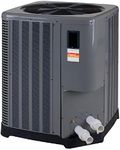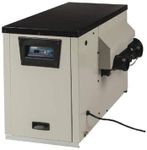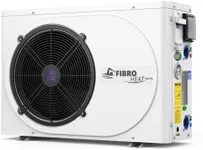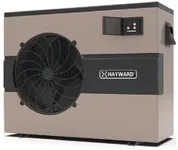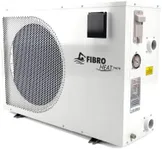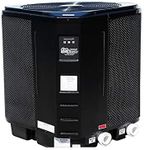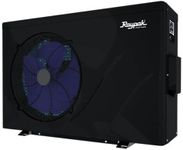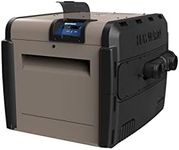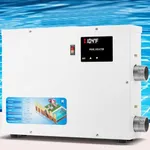Buying Guide for the Best Electric Pool Heat Pump
Choosing the right electric pool heat pump is essential to ensure your pool stays at a comfortable temperature throughout the swimming season. A heat pump works by extracting heat from the air and transferring it to the pool water, making it an energy-efficient option. To make an informed decision, you need to consider several key specifications that will determine the performance, efficiency, and suitability of the heat pump for your specific needs.Heating Capacity (BTU)Heating capacity, measured in British Thermal Units (BTU), indicates the amount of heat the pump can produce. This is crucial because it determines how quickly and effectively the pump can heat your pool. Smaller pools may require a heat pump with a lower BTU rating (around 50,000-70,000 BTU), while larger pools will need a higher BTU rating (100,000 BTU or more). To choose the right capacity, consider the size of your pool, the average air temperature in your area, and how quickly you want the pool to heat up.
Coefficient of Performance (COP)The Coefficient of Performance (COP) measures the efficiency of the heat pump. It is the ratio of heat output to the electrical energy input. A higher COP means the heat pump is more efficient, providing more heat for less electricity. COP values typically range from 3.0 to 7.0. For optimal energy savings, look for a heat pump with a higher COP, especially if you plan to use it frequently or for extended periods.
Size and DimensionsThe physical size and dimensions of the heat pump are important to ensure it fits in the designated space near your pool. Measure the available space and compare it with the dimensions of the heat pump. Additionally, consider the clearance required for proper airflow and maintenance access. Choosing a heat pump that fits well in your space will ensure efficient operation and ease of maintenance.
Noise LevelNoise level, measured in decibels (dB), indicates how loud the heat pump will be during operation. This is important if you want to maintain a peaceful pool environment. Heat pumps typically produce noise levels between 50-70 dB. If noise is a concern, look for models with lower dB ratings or those specifically designed to operate quietly. Consider the location of the heat pump relative to living areas and neighbors.
Durability and Build QualityDurability and build quality are essential for ensuring the heat pump can withstand outdoor conditions and provide long-term performance. Look for heat pumps made with corrosion-resistant materials, such as titanium heat exchangers and UV-resistant casings. A well-built heat pump will have a longer lifespan and require less maintenance, making it a more cost-effective choice in the long run.
Control and FeaturesModern heat pumps come with various control options and features that enhance convenience and performance. These may include digital displays, programmable timers, remote controls, and compatibility with pool automation systems. Consider what features are important to you, such as ease of use, precise temperature control, and the ability to integrate with other pool equipment. Choosing a heat pump with the right features can improve your overall pool heating experience.
Warranty and SupportA good warranty and reliable customer support are important factors to consider when purchasing a heat pump. Warranties typically cover parts and labor for a certain period, providing peace of mind in case of defects or issues. Look for heat pumps with comprehensive warranties and check the manufacturer's reputation for customer service. A strong warranty and support network can save you time and money if problems arise.
